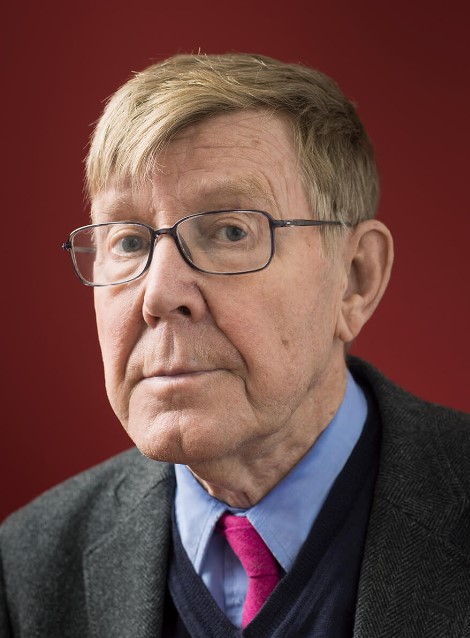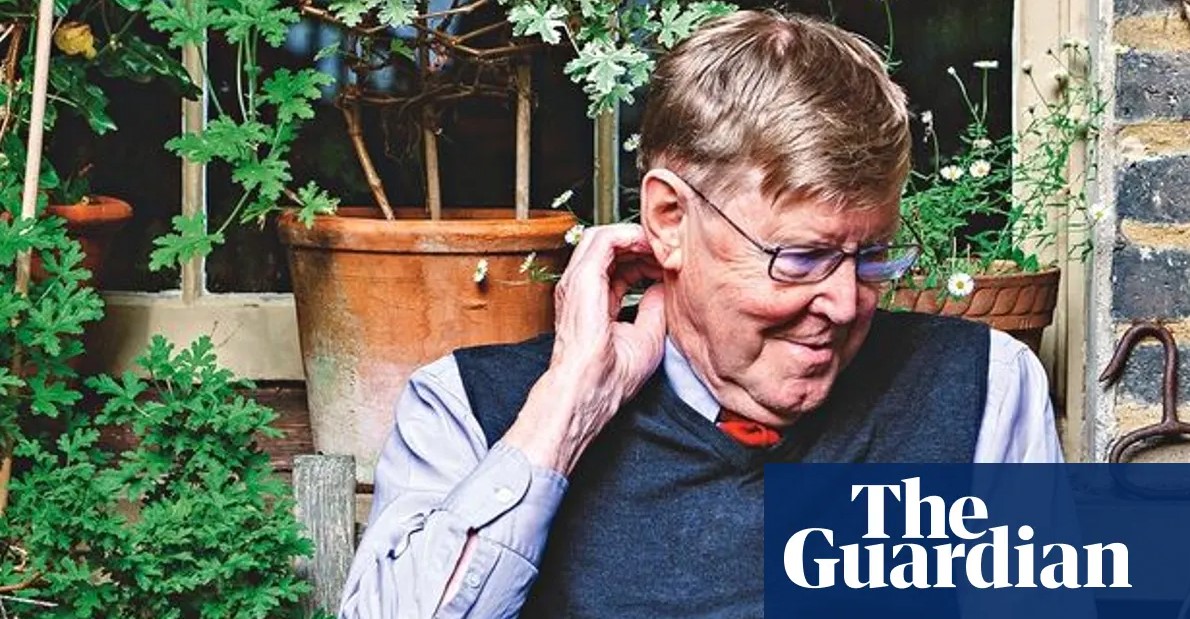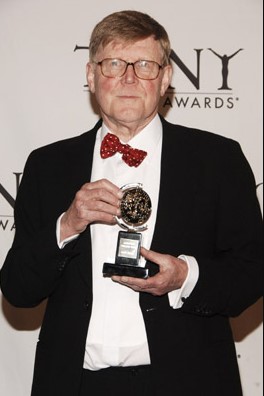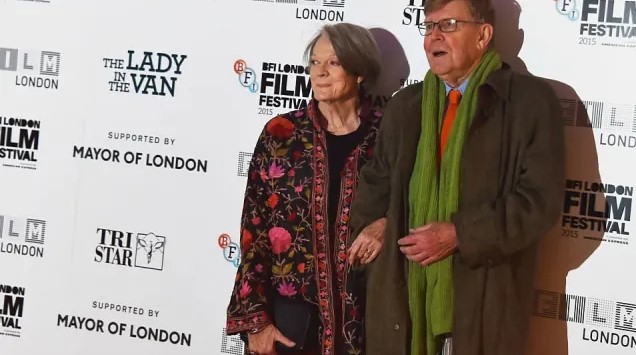Alan Bennett Phone Number, Fanmail Address, Autograph Request and Contact Details
If you want to know about Alan Bennett’s real phone number and also look for Alan Bennett’s email and fanmail address then, you are at the correct place! We are going to give you the contact information of Alan Bennett like his phone number, email address, and Fanmail address details.
Alan Bennett Contact Details:
REAL NAME: Alan Bennett
NICKNAME: Alan Bennett
DOB: 9 May 1934
BIRTHPLACE: Armley, Leeds, United Kingdom
NATIONALITY: American
BIRTH SIGN: Taurus
PROFESSION: Actor
FATHER: Walter Bennett
MOTHER: Lilian Mary Peel
SIBLINGS: NA
SPOUSE /WIFE: Rupert Thomas
CHILDREN: NA
INSTAGRAM: https://www.instagram.com/alan.bennett
TWITTER: https://twitter.com/bennett_diaries
FACEBOOK: NA
YOUTUBE CHANNEL: NA

Alan Bennett Bio
Alan Bennett was a well-known British dramatist who was most known for his works “The Madness of George III” (1991) and “The History Boys.” Bennett was born on May 9, 1934, in Leeds, Yorkshire, England (2004). The consequences of his candid examination of the British class structure, decorum, and the cultural gap that exists between the north and the south of England in his writing were both horrifying and funny. Bennett got his undergraduate degree in history from Exeter College, Oxford in 1957. Prior to that, he studied at Leeds Modern School and was awarded a scholarship to attend that institution. After having a great deal of success with the comic revue Beyond the Fringe in 1960, he decided to cut short his blossoming career as a junior professor in history at Magdalen College, Oxford.
Together with Peter Cook, Jonathan Miller, and Dudley Moore, he coauthored and acted in the show, which the four of them performed to standing-room-only crowds in Edinburgh, London, and New York City. Bennett’s very first play, titled Forty Years On, was performed in 1968 with John Gielgud in the lead role. After that came a slew of plays, films, and television serials, in addition to a few works written just for the radio. Talking Heads, a series of monologues for television that debuted in 1987 and brought him his first of six Laurence Olivier Awards, propelled him to fame and established him as a household figure (annual theatre awards established in 1976 as the Society of West End Theatre Awards).
The Madness of George III was first performed in 1991 at the National Theatre, and the film version of the play, titled The Madness of King George, was released in 1994. The film adaptation received numerous nominations for Academy Awards, including one for Bennett’s script. Bennett’s unique ability was to transform everyday events into tragicomic plays, and he was able to maintain the light touch that was distinctive of his writing even when he was discussing intellectual heavyweights like Ludwig Wittgenstein or Franz Kafka. Bennett was a master of his craft.
His talent at portraying the mannerisms of individuals from the middle class and higher class was interestingly juxtaposed with his ability to create a realistic discourse for the “common folks” of his own background. Bennett’s ability to write in a variety of genres was largely responsible for his widespread acclaim as one of the era’s most accomplished playwrights by spectators and reviewers alike. Bennett’s play, “The History Boys,” was recognized as the finest new play at both the Critics’ Circle Theatre Awards and the Laurence Olivier Awards, and Bennett himself was given the Olivier Special Award. The drama, which took place in Yorkshire in the 1980s and featured a battle of ideals between two teachers who were guiding a class of state-school lads through their university entrance tests, was set in Yorkshire.
It was successful as both a serious-minded indictment of the school system in Britain at the time as well as it is today as well as a beautifully humorous amusement. The play The History Boys, which premiered on Broadway in the same year as its film adaptation and won six Tony Awards, was adapted into a movie and released in 2006. Bennett’s subsequent plays included The Habit of Art (2009), which examines questions of age and creativity via an imagined interaction between the poet W.H. Auden and the musician Benjamin Britten. Another of Bennett’s later plays was The Habit of Art (2011), which was based on a true story.
In the film People (2012), an aristocratic former model whose family has lost their money must decide what to do with the run-down mansion that her family has lived in for generations. The 2018 film Allelujah!, which takes place in the geriatric ward of a struggling hospital in Yorkshire, has been seen as an indictment of the National Health Service in the United Kingdom. Bennett was also an author, and he released a number of works, including a few novels and collections of short stories. He adapted the short tale “The Lady in the Van” from the collection of the same name, which was published in 1990, for the stage in 1999, and for the big screen in 2015.
Writing Home was published in 1994 and became an instant best-seller. It was a compilation of his journals and reminiscences. In his autobiography, titled “Untold Stories,” published in 2005, he looked back fondly at his parents, poignantly reflected on his mother’s descent into senility and her death in a nursing home, and disclosed for the first time that he had received treatment for what had been believed to be terminal cancer. He also looked back fondly at his childhood and the time he spent with his grandparents.
In 2016, he had a collection of his journal entries spanning the years 2005 to 2015 published under the title Keep On Keeping On. The History Boys (1968), Talking Heads (1992), and Forty Years On (1968) are some of the most well-known plays that have been written by the British writer Alan Bennett (2004). Both in the United Kingdom and in the United States, he has received a lot of positive critical acclaim for his work. Bennett earned quick success at the 1960 Edinburgh Festival when he worked with Jonathan Miller and Dudley Moore on a satirical revue called Beyond the Fringe. Bennett had been up in Leeds and studied at both Oxford and Cambridge.

Eight years later, he created his first original play titled “Forty Years On,” which launched his career as a playwright. Bennett’s plays often incorporate elements of autobiography, heavily influenced by his personal experiences. He was previously dubbed “The Bard of British Loneliness” by The Guardian newspaper due to the recurring themes of melancholy and solitude in his work. Alan Bennett is renowned for his prolific writing, having authored over thirty novels, twenty plays, and numerous teleplays, screenplays, and radio show scripts. He has received several awards for his writing.
His body of work has earned him numerous prestigious artistic accolades in the United Kingdom, including the British Book Award (four times), the Laurence Olivier Award (five times), and two Tony Honors in the United States. Bennett is best known for his contributions to theater and film, including plays like “Talking Heads” and “The Lady in the Van,” as well as films such as “The History Boys” and “Allelujah!” Since 1983, he has contributed an annual diary entry to the London Review of Books, including reflections on Covid-19 and confinement at home with his companion Rupert Thomas in London and Yorkshire throughout the period from February 2020 to March 2021.
The week before, Rupert, who was then the editor-in-chief of World of Interiors, and his magazine faced turmoil when management questioned the feasibility of remote work for the entire crew. Initially perceived as a potential precursor to layoffs or staff reductions, it has now become apparent that this was a precautionary measure. The closure of the Milan office due to the coronavirus outbreak prompted an inquiry into a similar occurrence in London, though the likelihood of such an event is low.

Because of my arthritis, I am far less mobile than I used to be. Static semi-isolation is not a challenge for me, and it hardly even causes a disturbance to my normal schedule since gone are the days when I could get on my bike and ride down to the store quickly. George Steiner, who was no slacker when it came to working, once inquired of a Soviet dissident about how he managed to do so much in a day. “House arrest, Steiner. House arrest.” Unfortunately, with regard to my job, I haven’t really observed much of a change just yet.
The plays ‘A Chip in the Sugar and ‘A Woman of No Importance,’ both part of the playwright’s Talking Head series, will be performed at the Carlisle Green Room West Walls Theatre between the dates of August 22 and August 27. Since the release of his critically acclaimed play “Office Suite” in 2019, this is the first time that any of Alan Bennett’s works have been staged in a theatrical production. “It is an amazing honor to be able to bring the magnificent work of Alan Bennett to the Green Room stage once again,” said Jason Munn, who is both the director of the production and an actor in it.
Even though they were from Cleator Moor, his conversation and writing of Bennett are so rooted in the north that they have colloquialisms and mannerisms that remind him of his grandparents. “He remarked that Bennett’s dialogue and writing are so submerged in the north. It is generally agreed that the Talking Heads monologues represent one of Mr. Bennett’s crowning efforts, and they continue to be among his works of his that are held in the highest esteem. It’s clear that the people of Britain, especially those living in the north, have a great sense of humor and compassion. Tickets are £10 (or £9 for members), with the exception of a special Monday performance for which tickets are just £5 for anybody to attend.
| Alan Bennett phone number , Email ID, Website | |
|---|---|
| Phone Number | NA |
| House address (residence address) | Armley, Leeds, United Kingdom |
| Official Website | NA |
| Snapchat Id | NA |
| Whatsapp No. | NA |
| https://www.instagram.com/alan.bennett | |
| NA | |
| Twitch | NA |
| https://twitter.com/bennett_diaries | |
| TicTok Id | NA |
| Email Address | NA |
| Office address | NA |
| Office Number | NA |

Best Methods to Contact Alan Bennett:
It is simpler to contact Alan Bennett with the below-written contact ways. We have composed the authenticated and verified communications methods data as given below:
1. Alan Bennett TikTok: NA
2. Alan Bennett Instagram: https://www.instagram.com/alan.bennett
3. Alan Bennett Facebook: NA
4. Alan Bennett Twitter: https://twitter.com/bennett_diaries
5. Alan Bennett’s Phone Number, House Address, Email
Here we discuss the most common contact methods like his phone number of Alan Bennett, his email address, and his fanmail address.
Phone Number: NA
Email id: NA
Alan Bennett Fanmail address:
Alan Bennett
Armley,
Leeds,
United Kingdom